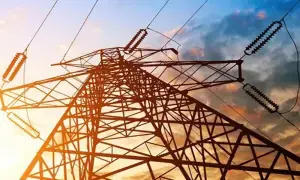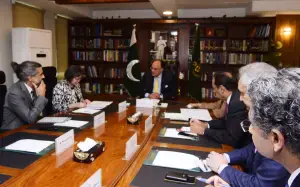Government mulls ending free electricity for judges, parliamentarians
2 min readThe Planning Commission has started working on reducing expenditures, including considering the elimination of free electricity provisions for judges, parliamentarians, and other institutions, amid the opposition’s campaign against the power projects signed with independent power producers (IPPs).
Sources within the Energy Division told Aaj News that the government has decided to work on an emergency plan to deal with the IPPs. The initiative has already been extended to other ministries as well, where efforts are underway to cut down on expenditures, they added.
The plan includes terminating the free electricity facility for all institutions, including judges and parliamentarians, they added.
In the second phase, the free fuel facility may also be discontinued. The performance of the National Electric Power Regulatory Authority and the Oil and Gas Regulatory Authority would be reviewed while the proposal to reduce maximum demand indicator charges for factories was also considered.
Only the industry and business sectors would be provided with legitimate concessions and facilities, as the government aims to prioritise cost-cutting measures across various sectors to address the country’s energy crisis, sources added.
Earlier this week, it was revealed that the capacity payments made to IPPs drained the public’s resources.
In the span of one year, the government did not purchase even a single unit of electricity, but instead made capacity payments of Rs1,929 billion. In total, Rs1,198 billion worth of electricity was purchased from IPPs, but Rs3,127 billion paid out.
Moreover, the federal government has formed an Inter-Ministerial Committee to review the existing power purchase agreement template. The committee is tasked with protecting consumers from losses caused by inadequacies on the part of power producers.
Also, read this
Pakistan to push Chinese utilities in Pakistan to switch to domestic coal
PM Shehbaz reduces electricity tariff for industries by Rs10.69 per unit
A study by the United Nations Children’s Agency has found that developing resilient energy systems to power health facilities in Pakistan could prevent over 175,000 deaths by 2030.
“From 2001 to 2004, I was in the Social Policy Development Centre and these agreements with power companies were being signed at that time. We raised voices against these agreements and said these are disasters and don’t do this, but despite that they [government] deliberately did this,” economist Kaiser Bengali said while appearing on Spotlight with Munizae Jahangir aired on Aaj News on July 8.
For the latest news, follow us on Twitter @Aaj_Urdu. We are also on Facebook, Instagram and YouTube.


























Comments are closed on this story.